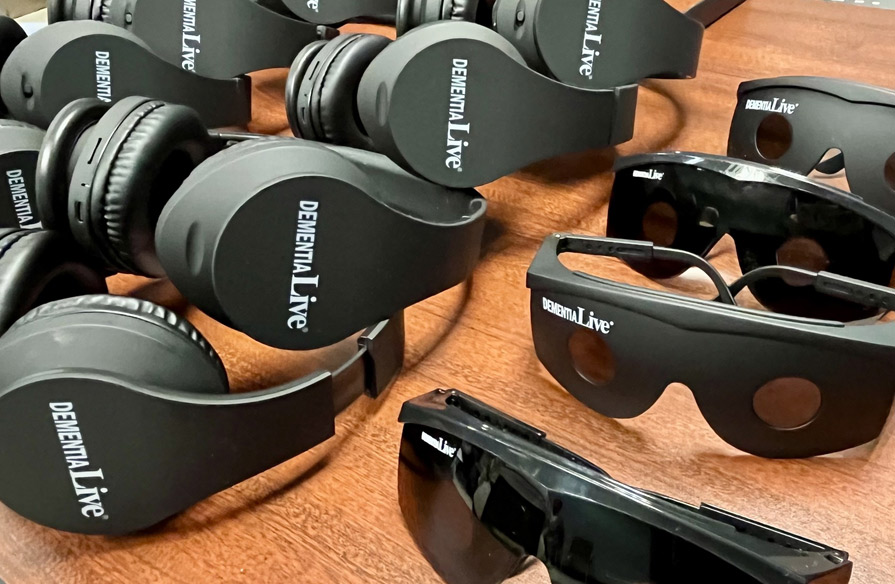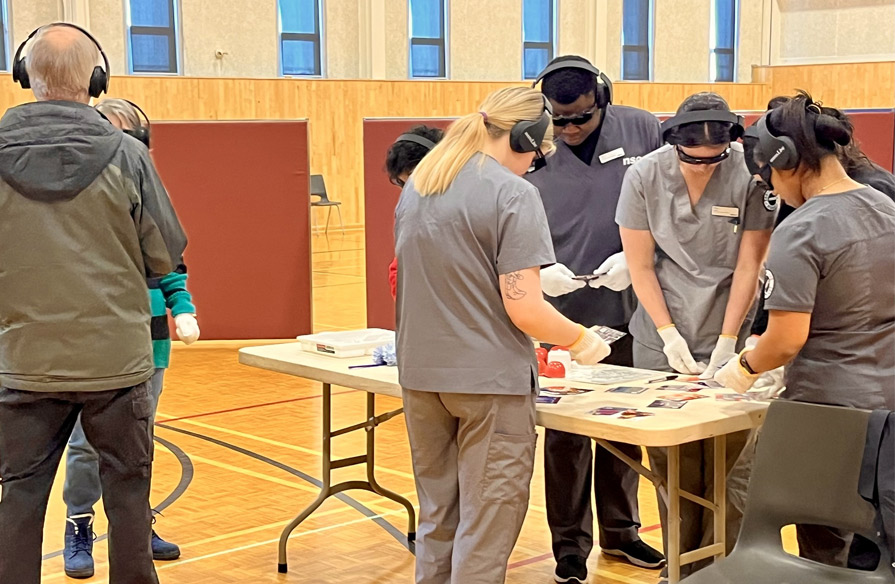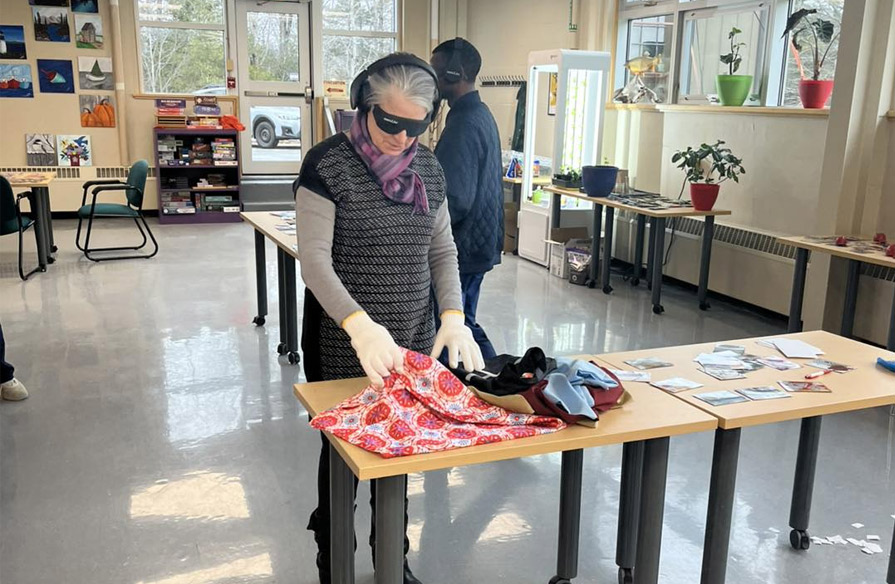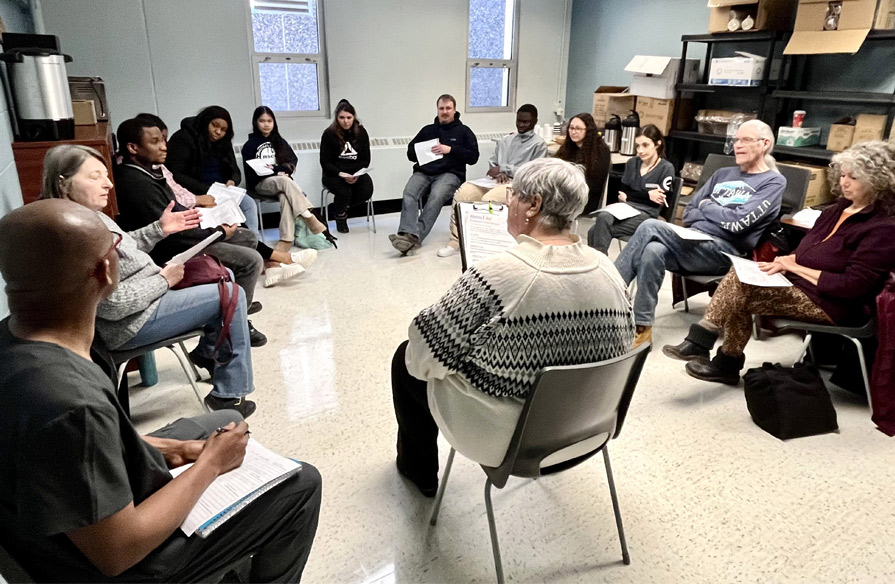Simulation helps NSCC students understand dementia care
A seven-minute simulation is reshaping how students – and entire communities – understand dementia. Through Dementia Live®, students in NSCC’s Continuing Care and Practical Nursing (PN) programs experience firsthand the challenges of living with dementia – an urgent skillset as cases in Nova Scotia are projected to rise 87% by 2050.
Developed by Age-u-cate Institute and offered in Nova Scotia for the first time through the Centre of Rural Aging and Health (CORAH) and NSCC, the workshop had 245 students, CORAH participants and healthcare professionals take part at four campuses: Annapolis Valley, Burridge, Shelburne and Strait Area.
An eye-opening experience
“Dementia doesn’t discriminate and it can impact anyone,” say Sheila Schuehlein, a gerontologist and Age-u-cate integrative dementia coach. “The simulation helps future healthcare providers better understand what it’s like to live in a state of confusion and that often changes how they approach care.”
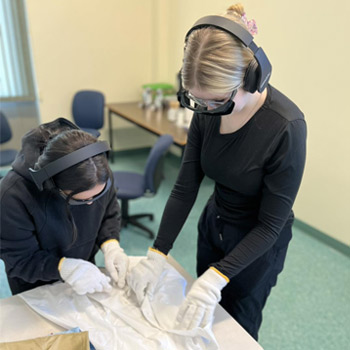
Wearing blurred goggles, headphones playing disorienting sounds and gloves that dull touch, Dementia Live® participants attempt to complete everyday tasks like buttoning a shirt, hanging clothes or feeding a pet, mimicking the sensory challenges faced by those living with dementia.
“It was frustrating, disorienting and scary,” says Tanya, a recent Continuing Care grad at Annapolis Valley Campus, who took part in the simulation. “Every healthcare provider should have the opportunity to do this.”
Afterward, participants debrief in an ‘empowerment room,’ and reflect on the common feelings of confusion, frustration and fear – and how small changes like slowing down, making eye contact or giving fewer instructions can make a positive difference.
This shift is something Carol Anne Cowan, a former Continuing Care faculty, has witnessed firsthand. “Students leave with a deeper understanding of what they’ve learned in class,” she says. “Experiencing it changes everything. They’ve developed a level of empathy that can’t be taught in a lecture.”
“The impact of this experience has been nothing short of transformative,” says Jennifer Wesman, CORAH Coordinator at the Annapolis Valley Campus site.
Preparing for the future of healthcare
Dementia Live® is part of a growing shift in healthcare education, using simulation-based learning to give students realistic, hands-on training. It reflects NSCC leadership in preparing students for real-world environments, with designated lab hours and simulated opportunities built into programs across the College – from healthcare to trades and beyond.
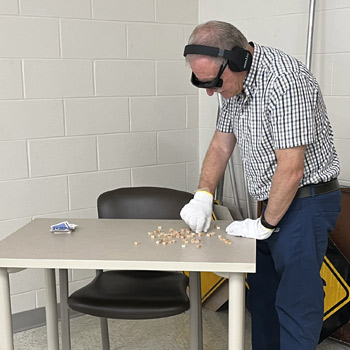
Learning together, across generations
What sets this experience apart is its intergenerational approach. Students take part alongside CORAH participants – older adults from rural communities, many of whom are caregivers, live with dementia or want to better understand the condition.
Maureen, a CORAH participant in her late 70s, took part in the simulation calling it “wonderfully terrible.” She adds, “I’m a competent person and I didn’t know what to do. It was scary, but so important. I now have a healthier attitude toward compassion and understanding of those living with dementia.”
Her husband Jerry, who observed the experience, agrees: “The more we teach people about dementia, the more empathy we can build. If we can help students learn that skill, it will change the way they care for others.”
From classroom to compassion
This mindset is exactly what the healthcare system will need more of in the decades to come. Donald, a recent Continuing Care grad at Annapolis Valley Campus says his approach to care will be completely different moving forward – calmer and more patient. “Experience is the best teacher,” he says. “Approach is everything. Patience and care make a difference.”
As for Tanya, her takeaway is similar: “I’m going to carry this experience with me into every room, every shift and every patient interaction. It reminded me why I chose this field – and how to show up for others, even on the hardest days.”
Looking ahead, CORAH and NSCC hope to make Dementia Live®, and other dementia awareness activities, available to more healthcare students and future CORAH participants – a shared commitment to leading change in healthcare education, supporting provincial needs and building community.


